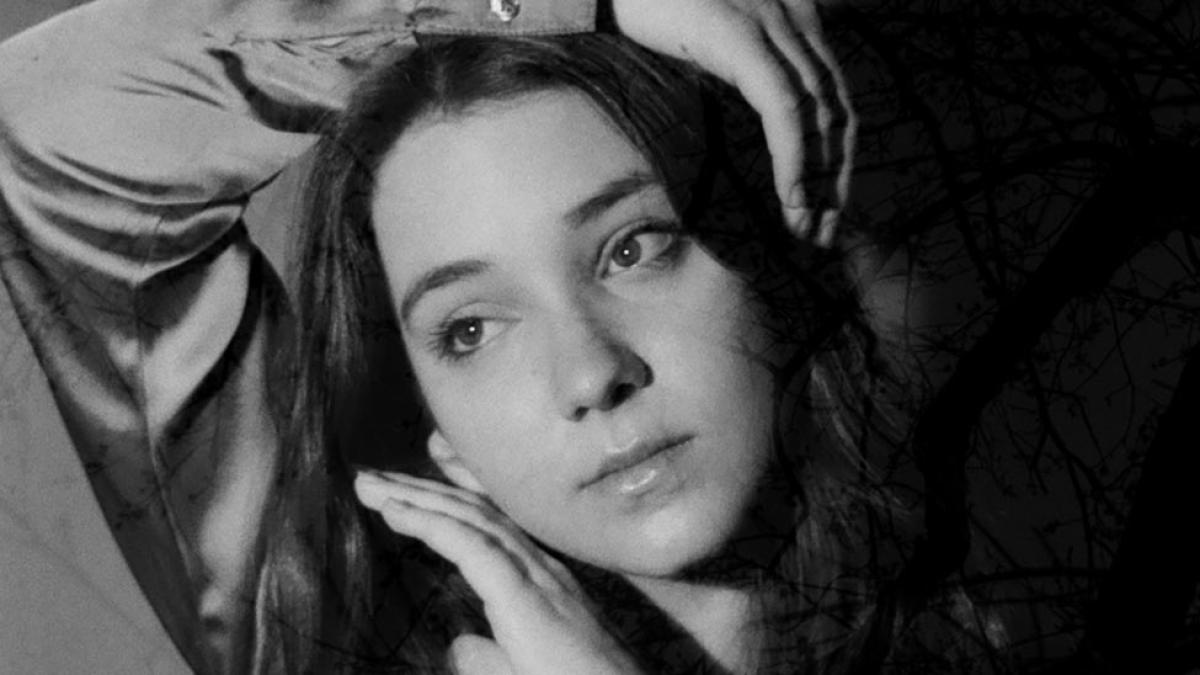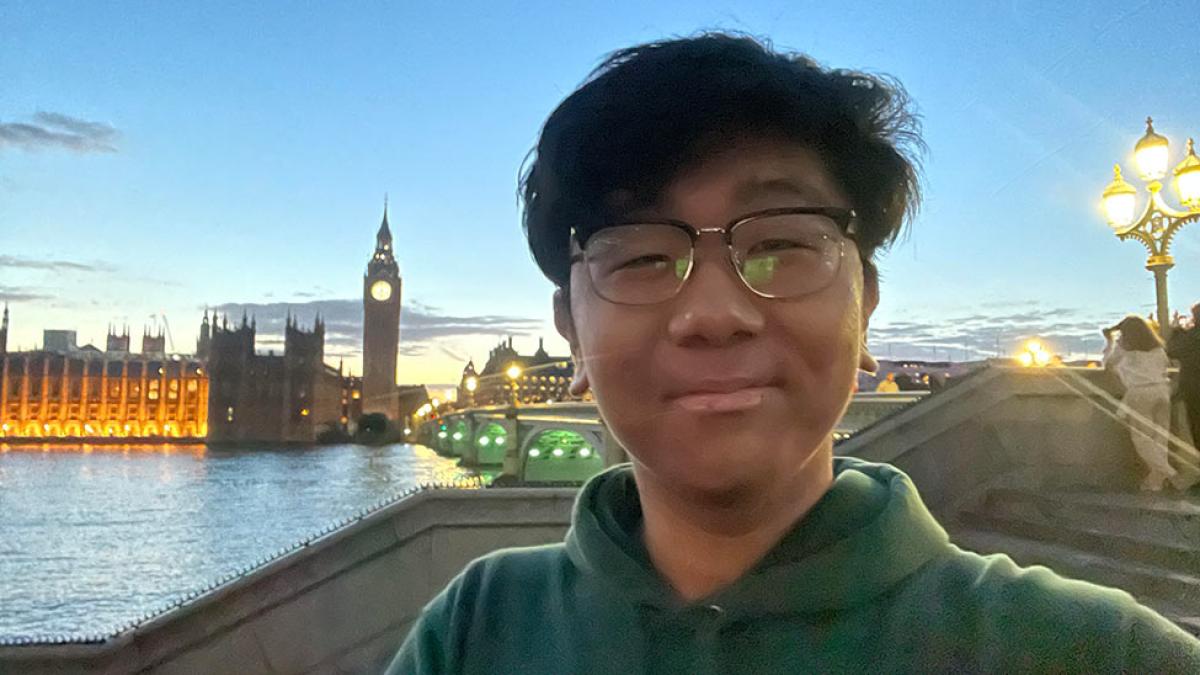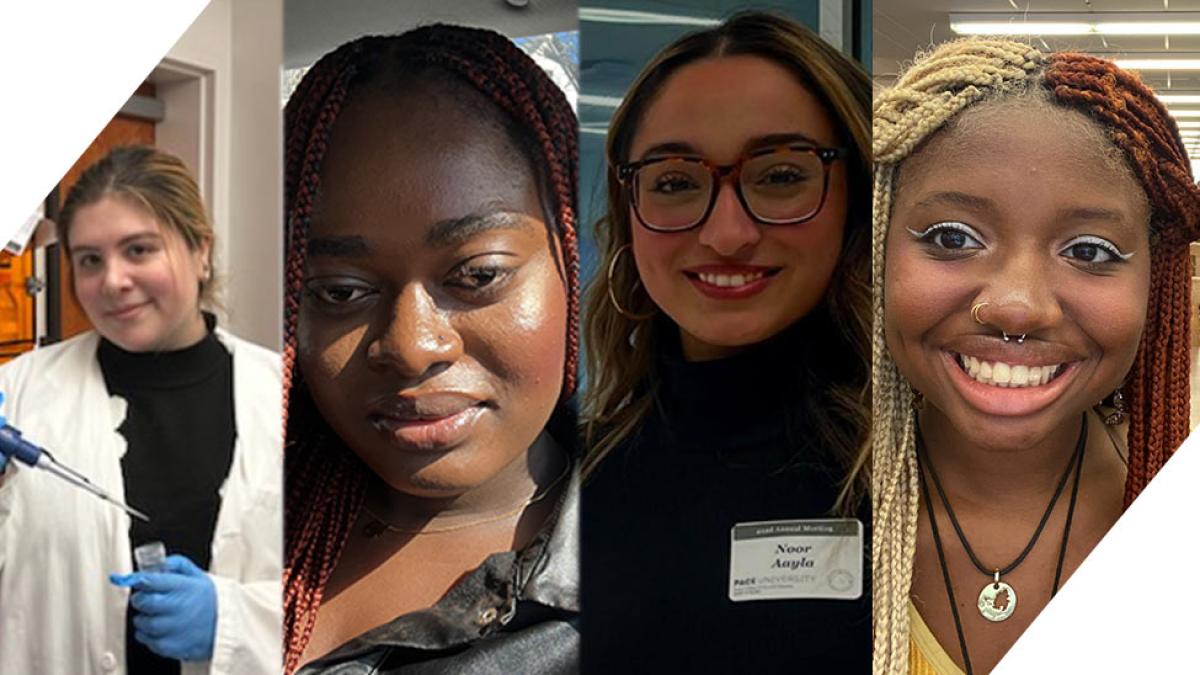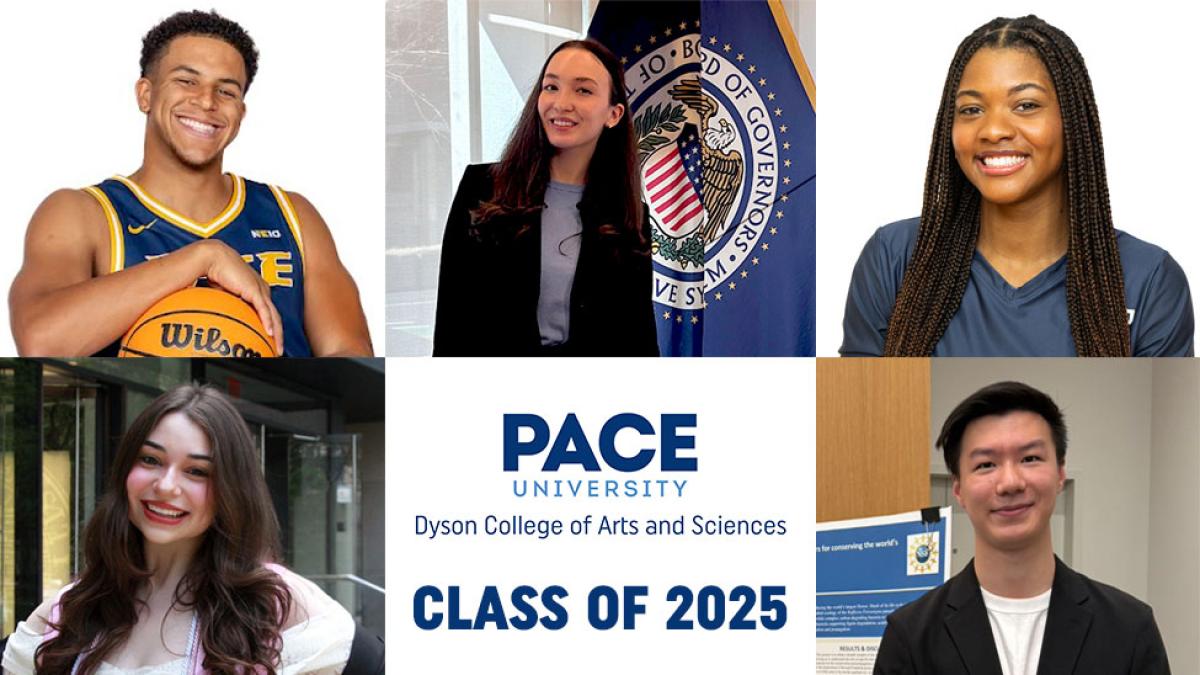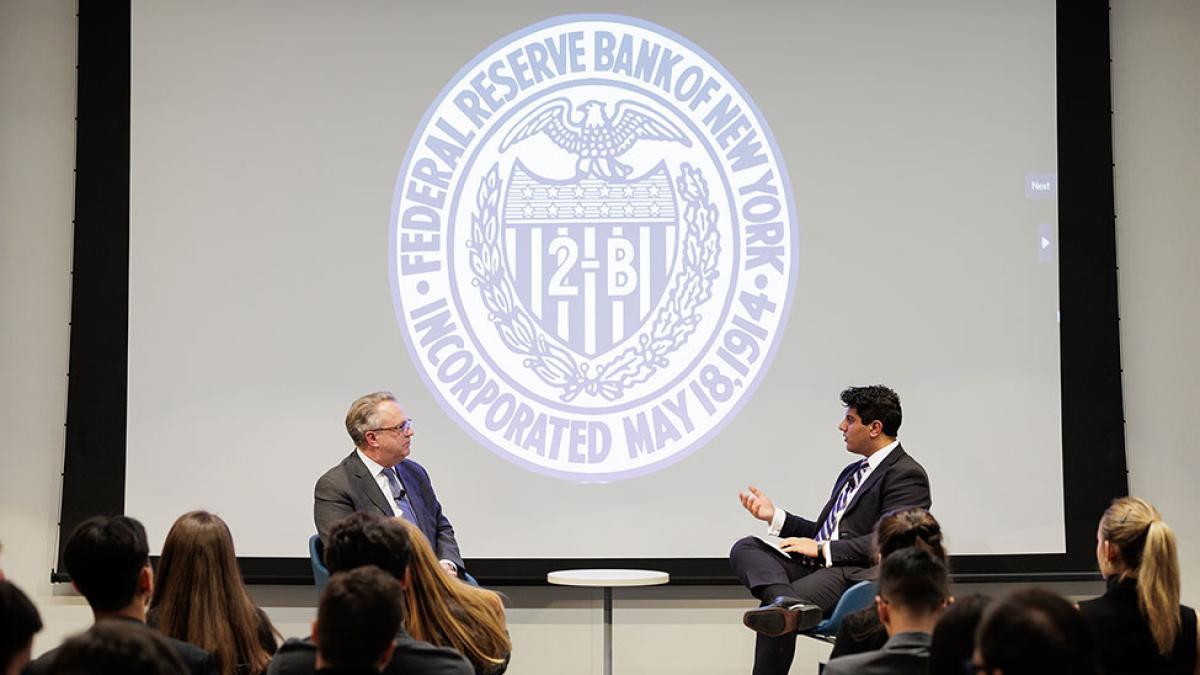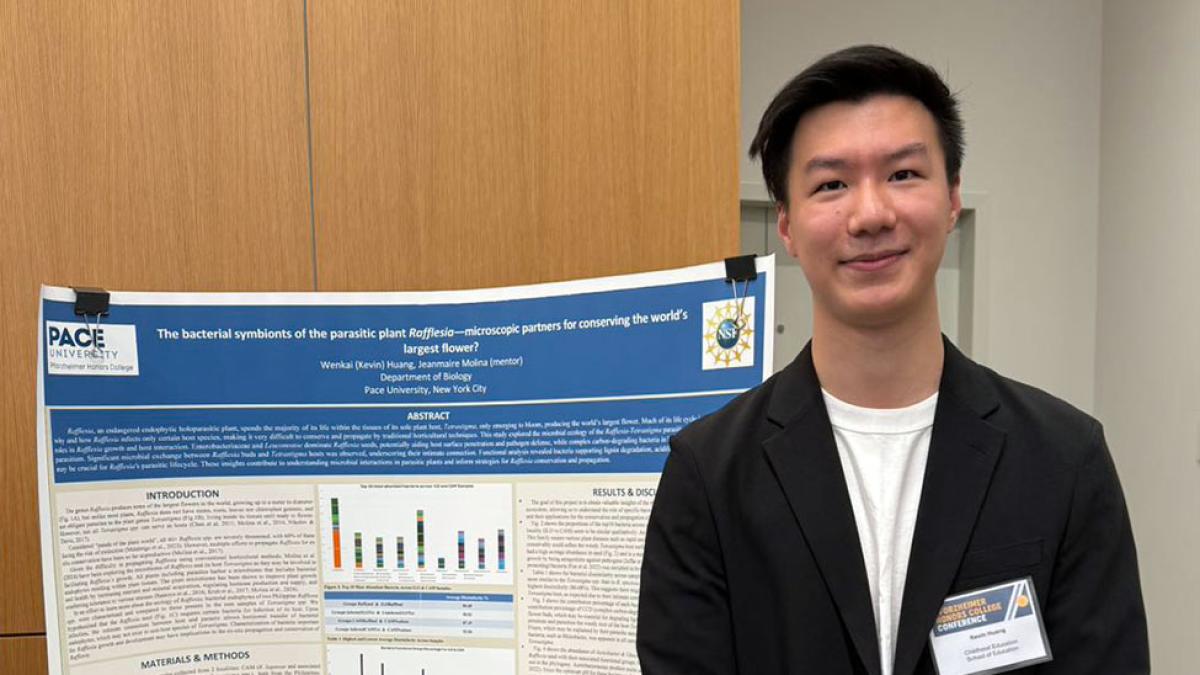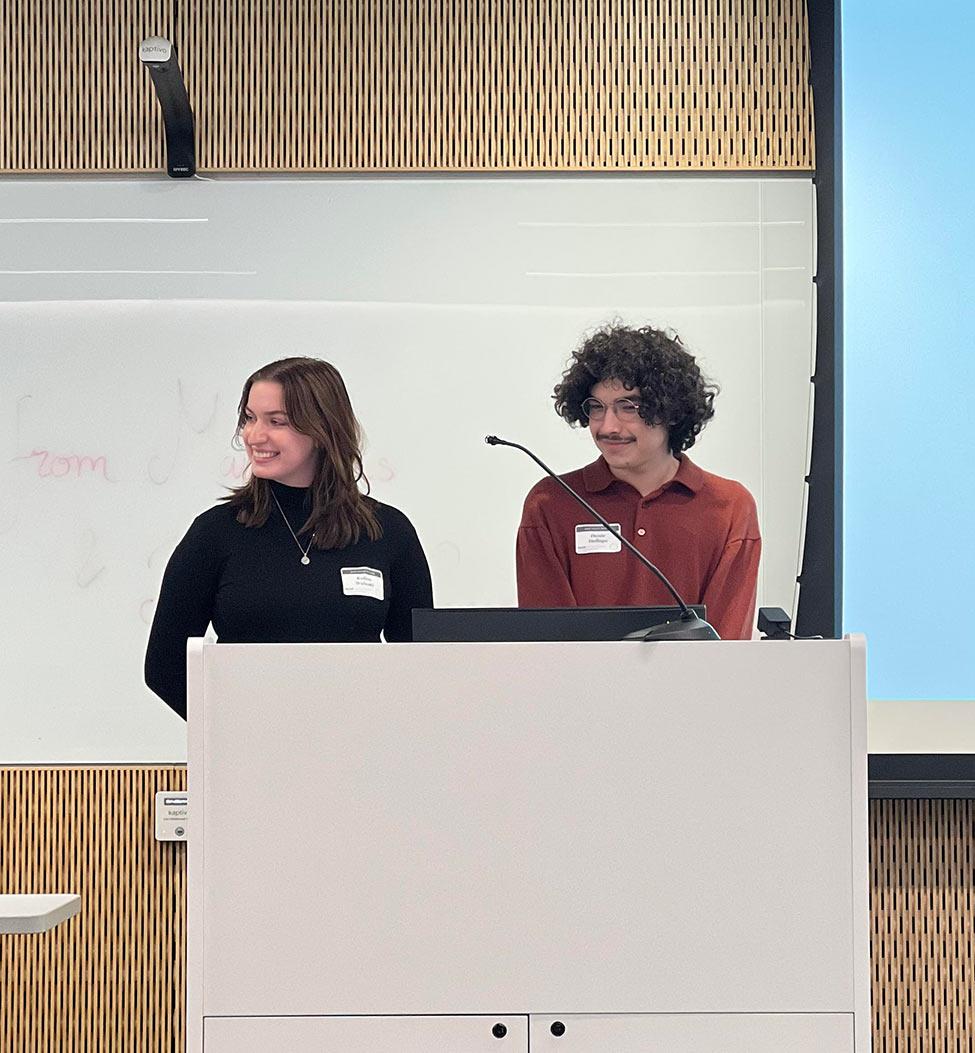
Q & A with Dante Dallago '24 and Kalina Walaski '24
As recipients of a 2022 Dyson Summer Research Award, Dante Dallago ’24, Directing and Peace and Justice Studies, and Kalina Walaski ’24, Acting and Peace and Justice Studies, collaborated on “Happy Holidays,” an investigative theater performance piece exploring the dynamics of the holiday dinner table from the perspective of Gen Z students. They will present it at the International Peace Research Association Conference in Trinidad and Tobago in May.

How did the idea for this project come about?
KALINA: We were in our Activist as Artist, Artist as Activist class with Professor Emily Welty, PhD, and that was a unique class in which we learned theory on one day, and the next day did a workshop of a specific art piece. Professor Welty came to us asking if we wanted to do a more research-based project on peace and justice studies and theater.
DANTE: At first, it was just going to be more of a research-type paper. But then we all agreed that we wanted to do a theater piece with it as well.
You describe this piece as investigative theater. What is investigative theater and why is it impactful?
KALINA: Investigative theater goes under this blanket genre of documentary theater, which everybody fights about in the theater world because people can't agree on what it really means. Basically, documentary theater is theater that's based on real-life source material, real stories, and real people.
Investigative theater is a type of documentary theater that’s more interview-based, in which you research specific people and stories, and then create a play based off that. It's important because theater is such an expansive medium. The audience may not have had any interest [in a certain topic] before, but you put a story in front of them that prompts them to feel something emotionally. Even though you can't control what they feel emotionally, they're still feeling something and getting that story.
DANTE: We decided to do an investigative theater piece because we all knew how to go about it. Our professor had training in it, and it’s closely related to peace and justice studies because we are investigating real-life issues and then putting them on stage.
What was the most rewarding part of working on this piece?
DANTE: For me, it was cool to see the text from the interviews come to life with these stories and how our work came to fruition in these characters. And it was so fun getting to work on it with Kalina and Professor Welty because we all brought our own perspectives to it, and it just made it that much better.
Conversely, what was the most challenging thing that you've had to face working on this piece?
KALINA: I had never done a large research project like this before, and I had also never really interviewed anyone before. So, that was a learning experience because I didn't think I was going to be very good at it. But it was a lot of fun when I got the hang of it. I also had to learn how to do research at the beginning of this, but Professor Welty helped us decide what was most important and how to organize our information.
What has been the most surprising or unexpected thing that you've learned from working on this piece?
DANTE: For me, it’s that verbatim theater is a lot more crafted than one might think because as we edit these stories, we decide what pieces of text from the interviews work, and which don’t. There are a lot of ethics that go into investigative theater and documentary theater, and even in verbatim theater, because you want to make sure that you're still telling the interviewees’ story in the right context, in the right way, in how they want to portray it.
KALINA: I'm very surprised by how emotionally attached I am to the interviews I worked on. It’s so hard to cut parts out because I think they're so funny and so interesting. I wasn't expecting to hold onto something so dearly, and it goes along with the ethics of cutting certain things out, especially when you have your own possible biases of what you want to include.
Theater and its performance aspect put a magnifying glass to the world. Theater is a great way to focus on current issues in the world.
The combination of peace and justice studies and performing arts is an unexpected one. How do you view them as being connected and why did you choose to study both?
DANTE: I think the inherent storytelling structure of theater is so beneficial to peace and justice studies because theater tells a story where there is a conflict and a resolution, and the characters will grow from it. Often, we view conflict as a bad thing, but it can be beneficial. And that's what peace and justice studies is—it’s all about how we transform conflict into a positive outcome and how we can learn from it as well.
KALINA: I also think that theater and its performance aspect put a magnifying glass to the world. Theater is a great way to focus on current issues in the world.
How has this piece inspired any future research or artistic work that you hope to do?
KALINA: The two of us and Professor Welty are really interested in continuing and have been meeting to discuss how we can make this play more sustainable and more interesting. We're working on our upcoming presentation for the International Peace Research Association Conference in Trinidad and Tobago in May, and possibly putting on a showing or doing a workshop reading of this play. This project has gotten me more interested in documentary theater and all its different forms.
DANTE: I'm a playwright, so I like writing plays in a lot of different styles. Because of this experience, most of them now are deeply rooted in research, similar to work one would do for a research paper, allowing the characters to have more depth.
Related Stories
Through a Provost Office Student Faculty Undergraduate Research Initiative Award, Film and Screen Studies major Veronika Orlovska '25 visited a Ukrainian refugee camp in a small town in Ireland to share the experiences of children±—rooted in her own personal story—through the power of art and film.
Students in Pace University's First-year Experience in London program study British literature from the heart of London, explore world-renowned theaters and museums, and form lifelong bonds to each other and to Pace.
Last winter, Pace University received a Collegiate Science and Technology Entry Program (CSTEP) grant from the New York State Education Department, aimed at providing resources—including scholarships, faculty-student research opportunities, and professional development workshops—to students from underrepresented groups in STEM fields. Four Dyson students describe the impact the program has had on their undergraduate experience and their lofty plans for the future.
